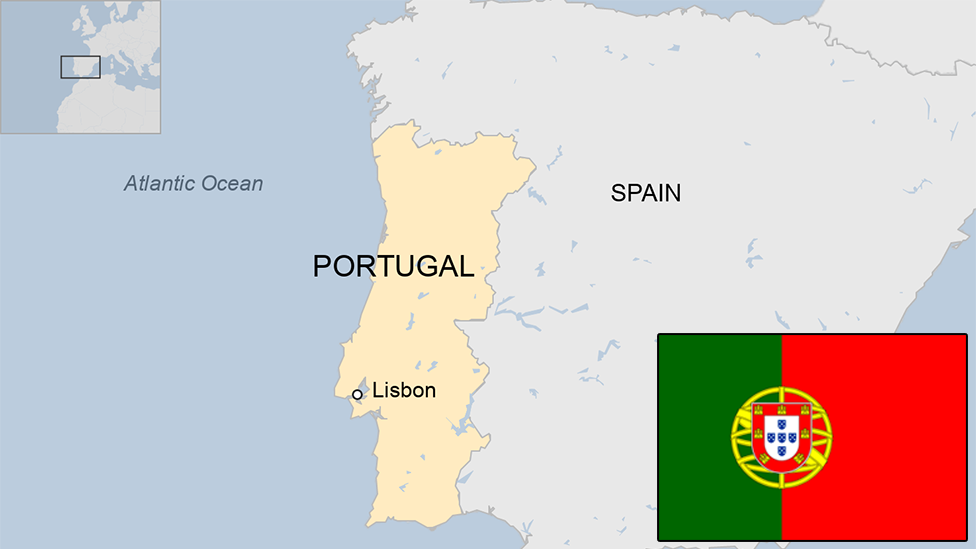Portugal's Coelho invited to stay as prime minister
- Published
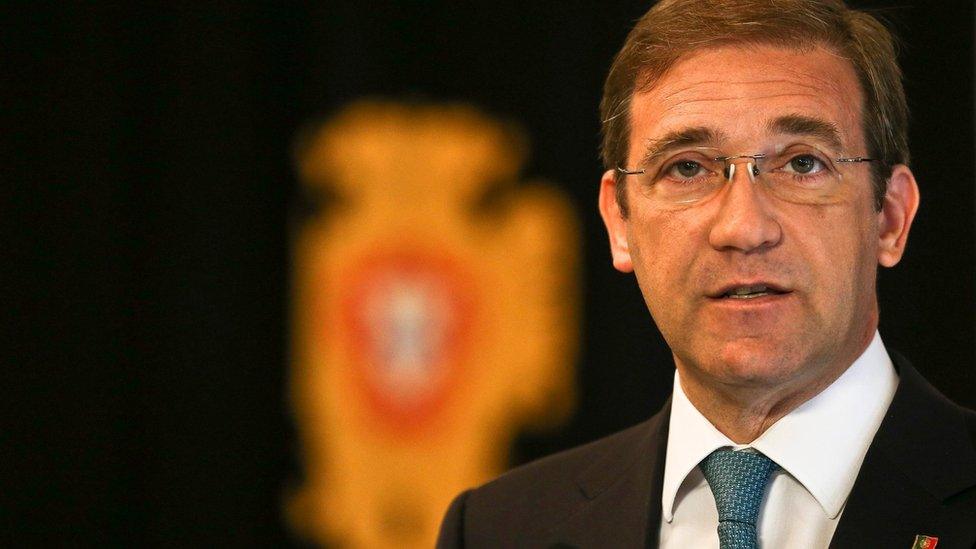
Mr Passos Coelho may find it difficult to muster the necessary support in parliament
The Portuguese president has invited incumbent Prime Minister Pedro Passos Coelho to form the next government, despite him having lost his majority.
The centre-right coalition led by Mr Passos Coelho won the most seats in the election on 4 October.
But Socialist leader Antonio Costa has been working to build a coalition with far-left parties.
Many believe that Mr Passos Coelho will fail to pass the test of a vote of no confidence in Portugal's parliament.
President Anibal Cavaco Silva would then be expected to ask the left to form a government.
There are fears that weeks of uncertainty could harm Portugal's economic recovery, more than a year after it exited the strict terms of its €78bn (£57bn) international bailout.
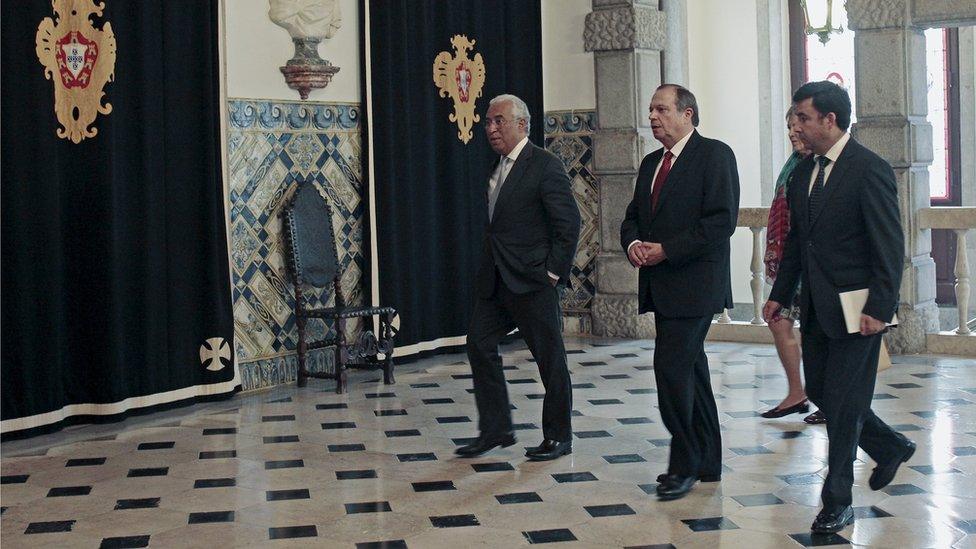
Party leaders including Antonio Costa (centre) have been meeting the president over the past few days
EU officials have threatened to take action against Portugal for missing a 15 October deadline to present its draft 2016 budget.
Portugal is still running one of the highest budget deficits in the eurozone.
Portugal economy figures
12%
of the workforce is unemployed
20%
of people live below the poverty line
-
485,000 emigrated from Portugal between 2011 and 2014
-
125% debt to GDP - the second highest rate in the European Union
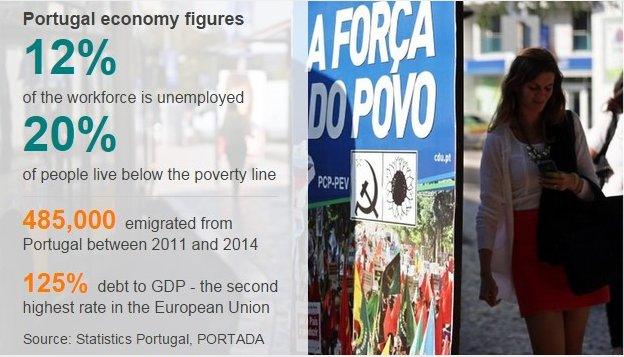
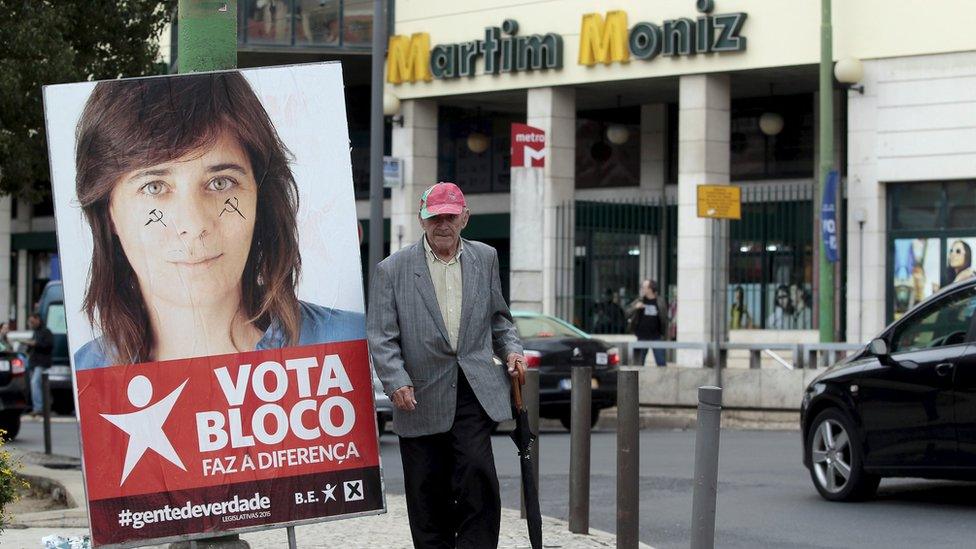
The Left Bloc has close links with Greece's anti-austerity Syriza party
Mr Passos Coelho's Social Democrats have promised to present a budget, but the two left-wing parties campaigned strongly against his outgoing government's record of harsh austerity.
The Left Bloc is seen as allied to the anti-austerity Syriza party in Greece, which for months tried to renegotiate the terms of Greece's eurozone bailout.
Portugal's Communist Party is regarded as anti-euro and anti-Nato, although it is thought to have moderated its eurozone policies in recent weeks.
If Mr Costa's Socialists are eventually chosen to lead a left-wing coalition, it would be the first time since the fall of Portugal's dictatorship in 1974 that a right-wing president appointed a government backed by communists.

Analysis by Alison Roberts, BBC News, Lisbon
After his re-appointment as prime minister leading a right-of-centre coalition, Pedro Passos Coelho has 10 days to appoint ministers and secure parliamentary approval.
That may prove impossible, since his coalition lost its majority in the 4 October election and the Socialists have pledged to reject his programme if their talks with other parties succeed.
Together, the Socialists, Left Bloc and Communist Party have a majority. All wanted the president to appoint Mr Costa - arguing that anything else was a waste of time.
If Mr Passos Coelho does fail, the president could then appoint Mr Costa or keep the incumbent on as caretaker.
Fresh legislative elections may only take place from June, after voters have elected a new president early next year.

- Published5 October 2015
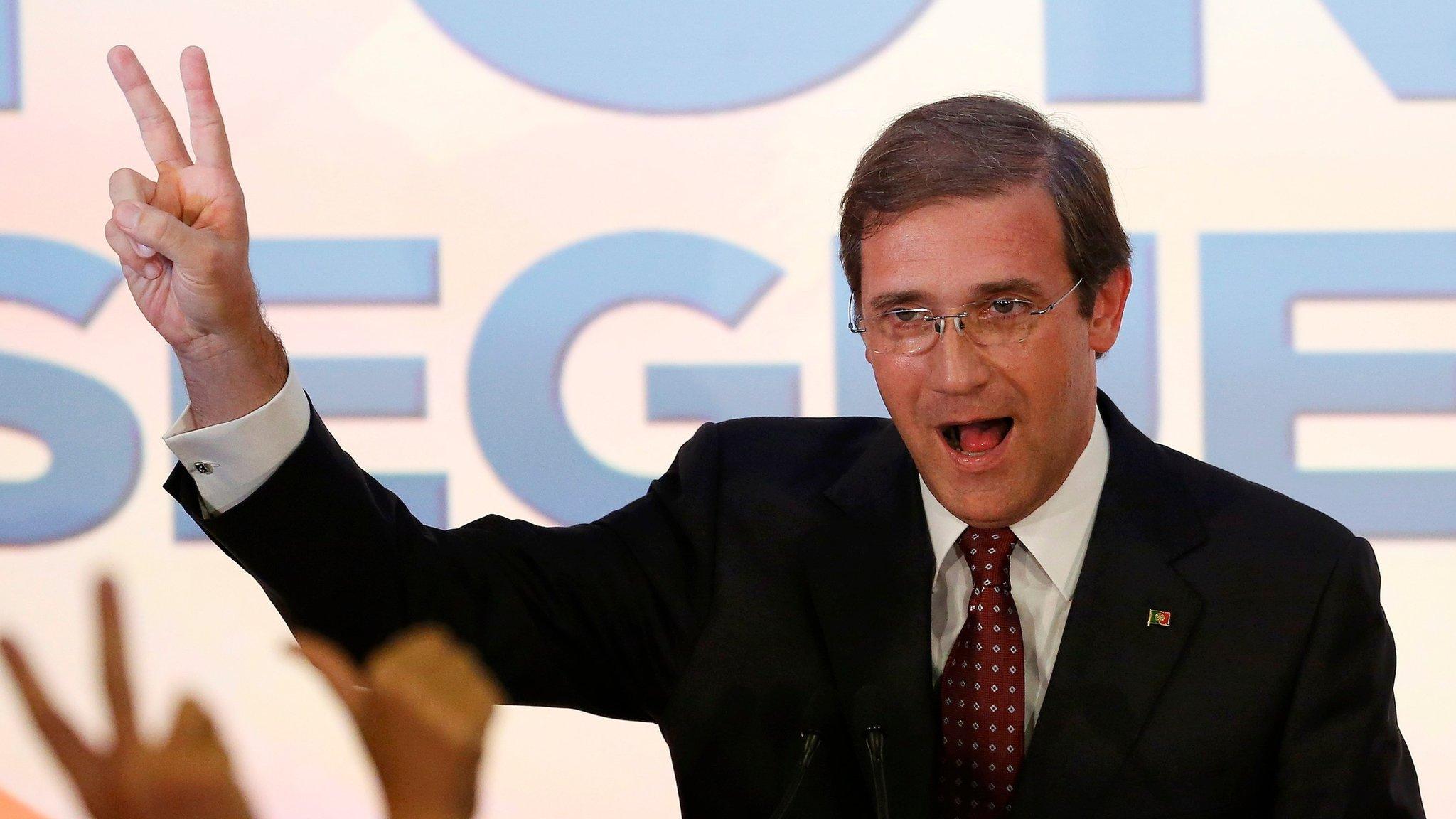
- Published22 March 2024
